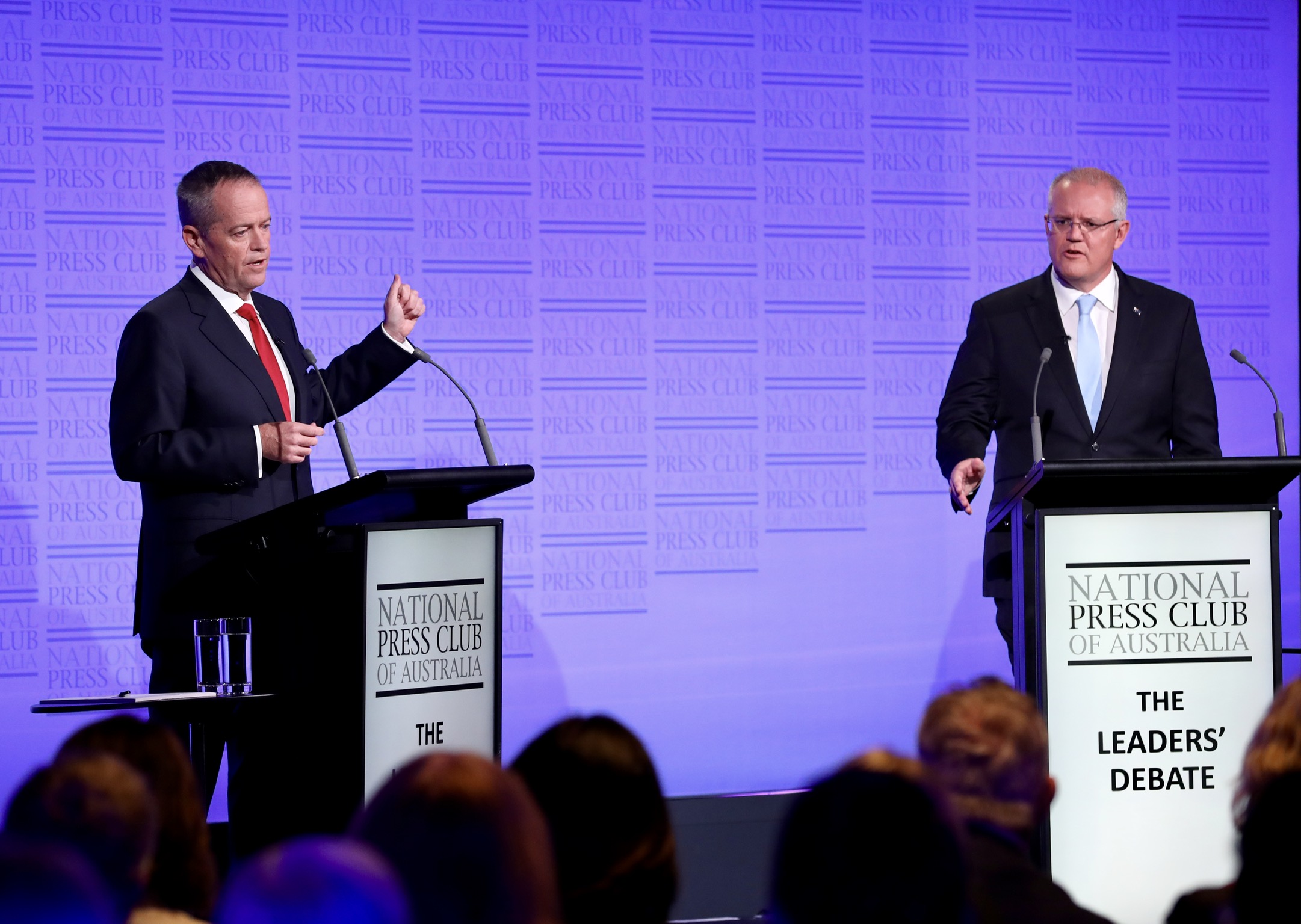
Business & Economics
2019 Budget: The Verdict Part 1

Labor has pledged to get wages moving again while the Coalition puts its faith in the economy. How voters see this policy divide could determine who forms the next Australian government
Published 15 May 2019
The slow rate of wage growth is one of the most widely talked-about features of the Australian economy in the lead-up to the 2019 Federal election.
For election-watchers, this may induce a feeling of déja vu, given that slow wage growth also featured prominently in the previous Federal election campaign in 2016.

The passage of time means Prime Minister Scott Morrison is having to deflect criticism that the government hasn’t done enough to ‘fix’ the problem of wages.
The ALP has pledged “to get wages moving again”, with the Opposition Leader, Bill Shorten, declaring that the 2019 election is “a referendum on wages”.

Business & Economics
2019 Budget: The Verdict Part 1
Labor has announced a suite of measures aimed at stimulating quicker wage growth. The centrepiece of its proposals involves replacing Australia’s national minimum wage with a living wage that is higher and set in a different way.
The current wage-setting obligations of the Fair Work Commission would be revised to put greater emphasis on tackling working poverty. This change would directly affect millions of low-paid workers.
In addition, Labor has committed to a raft of other policies that are narrower in their effects but, it says, would further help to boost wages growth. These include plans to:
reinstate Sunday penalty rates for thousands of service workers
implement a Tradie Pay Guarantee to protect sub-contracted workers from losing pay when businesses dissolve and restart with another name
tighten ‘sham contracting’ laws to stop employees being wrongly classified as contractors in the gig economy
increase penalties for businesses that ignore the minimum wage

Without endorsing it explicitly, Labor’s platform tacitly supports much of the Change the Rules campaign being run by the Australian Council of Trade Unions (ACTU).
In a bid to win over uncommitted progressive voters, the Australian Greens are claiming to go even further than Labor here, presenting themselves as “the only party that has formally endorsed the #ChangeTheRules campaign” and using the same rhetoric – “the laws are broken”.
The intentions of the Liberal and National Parties (LNP) on wages policy have been outlined in less detail than those of Labor and the Greens. They are responding to the challenge of slow wage growth in two main ways – tax cuts and promising to protect jobs.

Politics & Society
2019 Budget: Not just another budget reply
April’s Federal Budget will increase workers’ disposable incomes, through various tax changes. The most immediate and tangible change is increasing the ‘tax offset’ for low- and middle-income earners.
From July 2019, some 4.5 million taxpayers on ‘middle’ incomes ($A48,000 – $A90,000 a year) would be eligible for the full offset (tax reduction) of $A1,080, and another 4 million people on ‘low’ incomes (below $A48,000 a year) would get a partial offset worth at least A$255.
The Budget provides for these higher offsets to continue to 2021-22.
Business groups have argued that this ‘tax relief’ is a better way to help low wage-earners than increasing the minimum wage.
The Federal Budget also includes Treasury forecasts on wage growth, which underwrite government’s expectations about future revenue and the capacity for future expenditure. But during the whole recent period of Coalition government, these forecasts have proven to be wildly optimistic, with actual wages growth falling well short of expectations.

Critics have taken these overly-buoyant forecasts as a sign of the government’s misplaced faith in the ability of market forces alone to fix slow wage growth.
The second part of the Coalition’s wages strategy is to assert that Labor’s policies would ultimately do more economic harm than good, by increasing costs for employers and forcing them to cut jobs for the same vulnerable workers that Labor claims to be helping.

Politics & Society
Don’t write off One Nation’s election chances
Similar arguments are made each year in the Fair Work Commission during formal hearings to set the level of Australia’s minimum wage. The Commission, which is widely regarded as an ‘independent umpire’ of industrial relations disputes, has in recent years accepted that ‘modest’ minimum wage increases don’t necessarily cause increases in unemployment or other economic harms.
This finding is specifically about minimum wages and doesn’t mean that, beyond some point, a higher general level of wages cannot cause job losses.
But nor does the Commission’s view support the argument that a higher mandated level of wages always causes economic harm.
The Coalition is nonetheless hoping that voters will see Labor’s suite of wages policies as an unacceptable risk to Australia’s future economic performance.
‘Management of the economy’ has consistently been the most important economic issue for Australians since the respected Australian Election Study began tracking it in 2010. An Essential Media poll taken at the end of April also found that ‘managing the economy’ was very important for 33 per cent of Australians.

Surveys also show that Australians prefer the Coalition to the ALP on economic management (by a margin of 2 to 1) and, if anything, the gap is getting wider.
That means Bill Shorten’s insistence that this election is a referendum on wages brings with it some electoral risk. That is why Labor is trying to reframe how wages are talked about, making them not only about ‘economic management’ but also about fairness and equality.
The ALP is hoping that more voters will question whether responsible economic management really helps them, and whether a different government could do more.

Business & Economics
Challenging discrimination in the gig economy
Not for the first time, the major parties are offering Australian voters a clear, if traditional, choice: between trusting that the ‘rising tide’ of a growing economy will ultimately make everyone better off, and a more prescriptive set of policies targeting a different allocation of the benefits from economic growth.
In weighing up the importance of wages, Australians will be making a collective choice about the future role of the Federal government.
A victory for the ALP in this election would mark a revival in the fortunes of a more interventionist style of government, but a win for the Coalition would endorse the hands-off minimalism and faith in market forces that has typified recent government policy.
In term of wages, Australians have a real choice to make this Saturday.
A version of this article also appears on Election Watch.
Banner Image: Tracey Nearmy/Getty Images